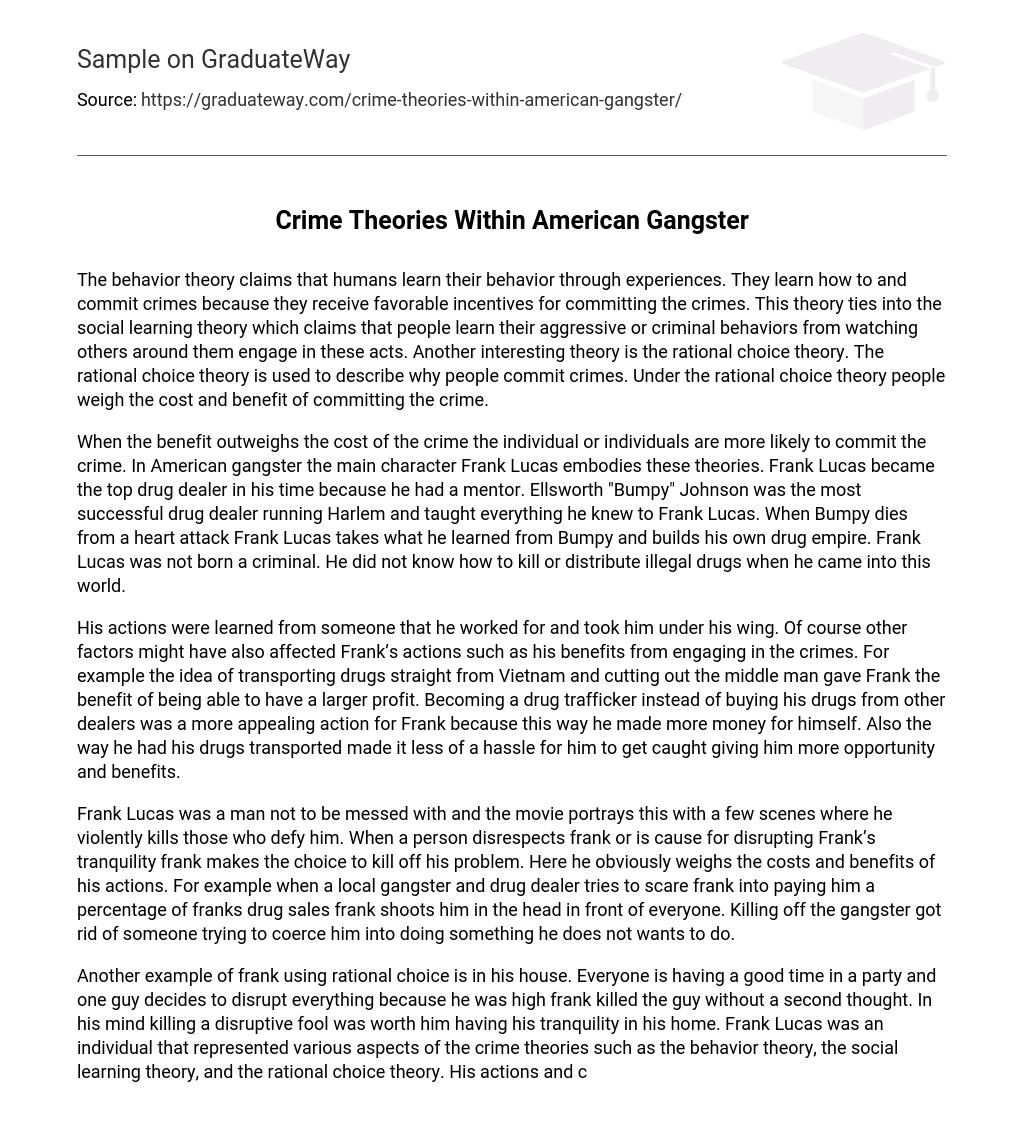Behavior theory suggests that human behavior is acquired through experiences, such as gaining knowledge and developing a willingness to engage in criminal activities when there are appealing incentives. The social learning theory supports this concept by suggesting that individuals learn aggressive or criminal behaviors by observing others who engage in similar actions. Another fascinating theory is the rational choice theory, which explains why people choose to commit crimes based on their assessment of the pros and cons involved.
In the movie American Gangster, Frank Lucas shows how people are more likely to engage in crime when the rewards outweigh the risks. With guidance from his mentor, Ellsworth “Bumpy” Johnson, who was successful in Harlem’s drug trade, Frank Lucas becomes a prominent drug dealer. He uses what he has learned from Bumpy to build his own empire after Bumpy’s death. It is worth noting that Frank Lucas did not have an innate inclination for criminal activity nor did he possess prior knowledge of violence or illegal drug distribution.
Frank learned his actions from someone he worked for and who mentored him. Other factors, such as the benefits he gained from committing crimes, also influenced Frank’s behavior. For instance, by directly importing drugs from Vietnam and bypassing intermediaries, Frank could maximize his profits. Choosing to be a drug trafficker instead of purchasing drugs from other dealers proved more lucrative for Frank. Moreover, his preferred method of transporting drugs minimized the risk of getting caught, providing him with additional opportunities and advantages.
Frank Lucas, a man who should never be underestimated, exhibits his unwavering resolve through several scenes in the movie, where he ruthlessly eliminates those who challenge him. Whether it is someone disrespecting him or causing disruptions to his peaceful existence, Frank opts to eliminate the source of his troubles. This indicates that Frank carefully considers the advantages and disadvantages of his actions. For instance, when a local gangster and drug dealer attempts to intimidate Frank into sharing a portion of his drug profits, Frank takes decisive action by fatally shooting him in front of a witnessing audience. This act ensures that the gangster’s coercion tactics no longer pose a threat to Frank or force him into undesired actions.
Frank Lucas exemplifies the rational choice theory in his home. During a party, when everyone is enjoying themselves, a man under the influence causes havoc. Without hesitation, Frank eliminates the disruptive individual. He believes that sacrificing the life of a troublesome person is a fair trade for maintaining peace and harmony in his own dwelling. Frank Lucas personifies several crime theories, including the behavior theory, social learning theory, and rational choice theory. His behaviors and criminal activities exhibit qualities derived from these theories.





